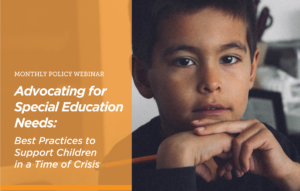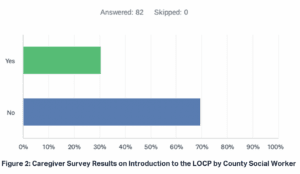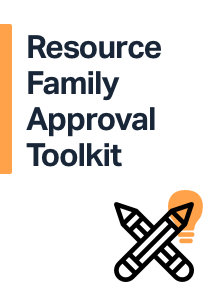During the first week of April, the Alliance for Children’s Rights and other statewide partners communicated concerns with congressional leadership about the significant impact of extended school closures on students in special education programs and regional center clients.
At this time of crisis, when distance learning is the primary option, children with disabilities lose out on educational opportunities provided to other children and are at high risk of having 50 years of their civil rights reversed.
COVID-19 also poses a special risk to those children who are the legal dependents of the state—those in foster care, or those on probation. Families caring for children with disabilities who cannot attend school are under additional stressors and there is greater risk of these children experiencing abuse or placement destabilization during the pandemic.
The coalition has urged federal lawmakers to:
• Oppose waivers under IDEA and Section 504 of the Rehabilitation Act.
• Support states by providing a total of $12.5 billion in IDEA funding for: tools necessary for distance learning including hardware, software, and connectivity; extended school year and other compensatory services; and ensuring providers are paid for telehealth-related services such as speech and language, occupational, and physical therapy.
• Focus on ensuring continuity of education and special education services by urging the Department of Education and Office for Civil Rights to provide additional guidance.
In addition, the coalition has asked Governor Newsom, the California Superintendent of Public Instruction and state legislators to:
• Provide a clear right to compensatory education resources.
• Provide equal technology and connectivity access to all children with disabilities immediately, including parent support in native language.
• Toll the statute of limitations on all dispute resolution.
• Extend age of special education and early intervention exits.
• Shorten special education assessment timelines for assistive technology.
To learn more about these proposals and how you can advocate for the learning needs of children and youth during these unprecedented time, join us for a special webinar:

Join us on Thursday, April 30 at 10am (PST), for an informational overview of best practices to support our children with disabilities in accessing special education services and supports in this time of crisis. Panelists will share information about how attorneys and caregivers can support children with disabilities in the short- and long-term. In addition, panelists will provide information on how advocates are supporting children through federal and state policy requests and a brief summary of new education policies on graduation and student progress.









